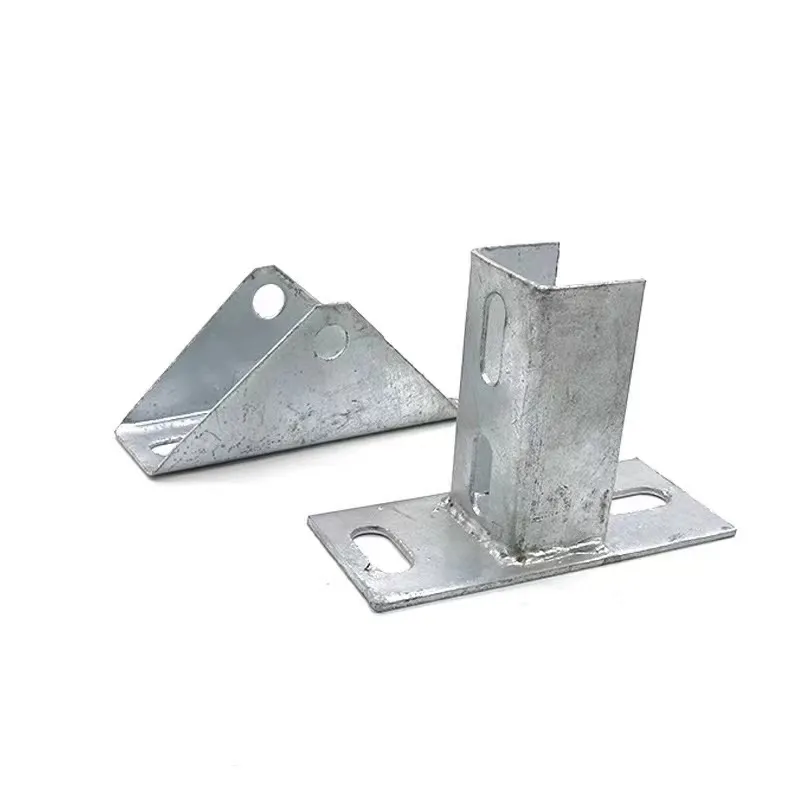

Durable Metal Washers for Enhanced Support and Stability in Various Applications
Dec . 12, 2024 01:03 Back to list
Durable Metal Washers for Enhanced Support and Stability in Various Applications
The Importance of Thick Metal Washers in Engineering Applications
In the world of engineering and construction, the importance of every component cannot be overstated. Among these components, thick metal washers play a pivotal role. Unlike their thinner counterparts, thick metal washers are designed for specific applications that require enhanced stability, improved load distribution, and increased resistance to wear and deformation. This article explores the significance, applications, and benefits of using thick metal washers in various engineering contexts.
Understanding Thick Metal Washers
Thick metal washers are flat rings made from various metals, including steel, stainless steel, and aluminum. They are specifically manufactured with a greater thickness compared to standard washers. This increased thickness contributes to their robustness and ability to handle higher stresses and uneven surfaces. The primary functions of washers include distributing load over a larger surface area, providing insulation between different materials, and preventing damage to the surface being fastened.
Benefits of Thick Metal Washers
1. Load Distribution One of the primary functions of thick metal washers is to distribute the load exerted by a nut or bolt over a wider area. This is especially important in applications where materials may be softer or more prone to deformation. By spreading the force, thick washers help to prevent sinking and providing a more stable connection.
2. Enhanced Stability In situations where equipment is subjected to vibrations or dynamic loads, thick metal washers increase stability. They reduce the risk of loosening due to vibrations, which is a common issue in areas such as automotive and aerospace applications. The thickness of the washer adds to its overall strength, helping to maintain the integrity of the assembly.
3. Resistance to Wear Thick metal washers exhibit superior resistance to wear and tear. In heavy-duty applications, they are often subjected to harsh conditions that can cause degradation over time. The additional material provides a buffer against physical and chemical wear, extending the life of the components they support.
4. Versatility Thick metal washers can be used in a wide range of industries, including construction, automotive, aerospace, and machinery. Their versatility makes them an essential component for various applications, from securing heavy machinery to supporting structural elements in buildings.
thick metal washers

Applications of Thick Metal Washers
Thick metal washers find their place in numerous applications
- Construction In structural applications, thick washers are used to secure beams and columns, providing a stable foundation for the entire structure. They help distribute loads from bolts and can accommodate potential shifts in the structure.
- Automotive In the automotive industry, thick metal washers are employed in assembly lines to provide support for critical components such as engine mounts and suspension systems, where vibration and load management are vital for performance.
- Aerospace Given the stringent safety regulations of the aerospace sector, thick metal washers are essential for securing fasteners in aircraft. Their durability and load-distributing capabilities ensure safety and reliability in flight.
- Machinery In heavy machinery, thick washers help to protect threaded connections from damage and wear, ensuring the longevity and operational efficiency of the equipment.
Conclusion
Thick metal washers are indispensable components within various engineering fields. Their enhanced load distribution, stability, resistance to wear, and versatility make them suitable for a wide array of applications. As industries continue to evolve and demand more robust solutions, thick metal washers will undoubtedly play a crucial role in ensuring the safety and performance of engineered systems. Investing in quality thick metal washers is essential for any construction or engineering project that aims for longevity and reliability.
Latest news
-
High-Strength Hot Dip Galvanized Bolts - Hebei Longze | Corrosion Resistance, Customization
NewsJul.30,2025
-
Hot Dip Galvanized Bolts-Hebei Longze|Corrosion Resistance&High Strength
NewsJul.30,2025
-
High-Strength Hot-Dip Galvanized Bolts-Hebei Longze|Corrosion Resistance&High Strength
NewsJul.30,2025
-
Hot Dip Galvanized Bolts-Hebei Longze|Corrosion Resistance&High Strength
NewsJul.30,2025
-
Hot Dip Galvanized Bolts - Hebei Longze | Corrosion Resistance, High Strength
NewsJul.30,2025
-
High-Strength Hot Dip Galvanized Bolts-Hebei Longze|Corrosion Resistance, Grade 8.8
NewsJul.30,2025

